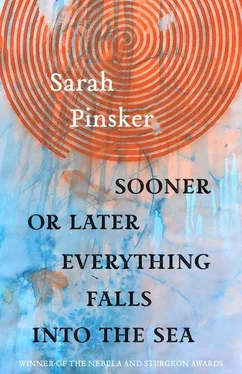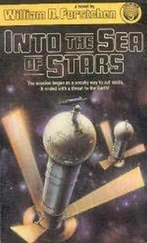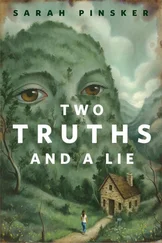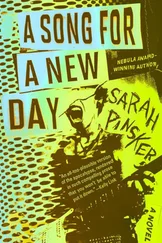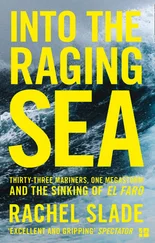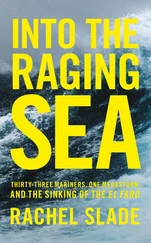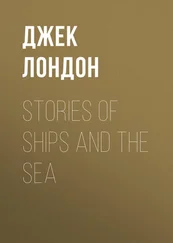He grunted and hoisted himself off the couch. She followed him back into the museum, where he pointed at the southeast corner of the cinema. A tiny figure she hadn’t noticed before peered around the corner. “That’s me.”
“You?”
“We still had a weekly paper back then. I was the only reporter. I wasn’t going to miss the only interesting thing that ever happened in this town. Everybody evacuated except me; I hid my car in a barn and doubled back to see what was going on. Except I should have known they’d never let me publish any of it. Someone bought the paper before the evacuation was even lifted, and I got canned. Nobody else would take the story.”
“Did you take pictures? Your figure has a camera.”
“Of course. But the negatives went missing before I had a chance to print them. It wasn’t like today, where you upload your phone’s photos to the cloud.”
“Huh,” Lynette said. She wouldn’t believe the man at all if it weren’t for that one strange detail. The one she had to ask about. “What’s with the whale car?”
He looked away from his miniature. “Narwhal. I don’t know. I don’t know who she was; I never managed to track her down. I guess the big heroes all had their own cities to defend and couldn’t be bothered with little towns. Anyway, that car was hard to forget. The rest of the scene is, uh, dramatic re-creation, I guess. The closest I could get to truth.”
“Huh,” she said again. “So, who comes to your museum? People who live here?”
“Nah. Nobody comes.” He laughed. “I keep it open a couple hours a week, but nobody comes. Nobody here believes it happened, and nobody else cares. It’s a pretty lousy museum.”
Lynette searched for a compliment. “Your diorama is fantastic. I’m sorry nobody believes you.”
“Do you?”
She considered. “Yeah. I think I do. Truth is always too weird to be fiction, right? In high school I told people that once a year circus elephants walked down my street, but nobody believed me. You don’t have any postcards, do you?”
“No. I thought they would look like a joke.”
Oh well. She’d keep the brochure as a souvenir, anyway.
Unless. “Look, um, I know this might sound strange, but would you let me borrow that controller thing that’s in the case? I’ll bring it back to you tomorrow.”
The man frowned. “Why would I let you do that? I told you they already took my photos. Where did you say you were from again?”
“I swear. I’ll bring it back. You can keep my student ID for the night. Or my driver’s license. Or”—she fished in her pocket—“this is my lucky coin. It’s not worth much, but you can see where I’ve worn it down playing with it in my pocket. I’m not leaving town without it. I promise I’ll be back in the morning, and I’ll make it worth your trust. Like you said, they already took your photos. The awesome part of your display is the diorama. An old controller doesn’t say much to anyone unless you know what it is, and I think I know what it is.”
“You do?”
“I think. Maybe.”
She wasn’t sure she had convinced him, but he crossed to the case and swung it open. It hadn’t even been locked. She handed over her lucky coin and accepted the device he handed to her. It was heavier than it looked.
“See you tomorrow?” He sounded resigned. She had a strange desire not to disappoint him.
The fence around the repair shop had been closed and locked as promised, but the narwhal’s bay stood open, probably because the horn extended a few feet beyond the garage door. It still looked friendly. She looked around, but the mechanic seemed to have left, and nobody else was on the street.
Hopefully the device didn’t need batteries. The directional toggle was self-explanatory, and the antenna, and the on/off switch. She examined the icons, trying to match them to the ones inside the car. The one with a horn on it seemed obvious, but she looked over her shoulder and realized it was aimed at the window of a two-story building across the street. Better to be careful.
Finally, she chose a button with two wings on it. Took a deep breath. Pressed it. Nothing happened at first, so she pressed again, for a little longer. A chuffing noise came from the garage. The whale chassis rose on its tires, then lifted, tires and all. Just a couple of feet. She lowered it as gently as she could back to the ground.
She walked back toward the motel, heading west into a setting sun, low enough and bright enough she had to turn her head slightly rather than watch where she was going. Her sunglasses were still in the whale. The narwhal.
The grocery and thrift store had both closed for the night. Beyond them, the ruined cinema. The chain-link fence stood seven or eight feet high, but there didn’t seem to be any security. No cameras, no razor wire at the top, nothing to say anybody was trying to keep anybody else out particularly badly. She walked perpendicular to the road until she drew parallel with the building, then scaled the fence.
The cinema’s wall was intact until it wasn’t. Wall, wall, wall, then a crumble of beige bricks and stucco. Beyond that, a large circular area that indented slightly, filled with dirt.
“Not much to look at.” Dahlia sat in an unanchored velveteen seat. She beckoned. Lynette flipped the seat beside her, which fell off its hinge. She sat cross-legged in the dirt instead.
“I think my mother came here once when I was a kid, but I can’t figure out why.” Dahlia held out the photo from her purse. “It has to be this place. The movies are still the same.”
“I think she was here, too.”
The Boss’s habit of turning her whole attention to the person beside her was much less terrifying when they weren’t driving. Her surprise showed clearly on her face. “What makes you say that?”
“Something happened here. There’s a museum about it in town.”
“What?”
“Yeah. Only open Fridays, but he’ll open the door for you. Your mother’s car is in his diorama. You’d probably make his decade if you drove up in it tomorrow.”
“Maybe I’ll do that, if we’re not running too late.”
They sat for a while in silence, the sun setting over the filled hole.
The Boss chewed at her nails and flicked them toward an imaginary window. “She used to disappear sometimes, but my dad always said ‘She’s off making sure there’s enough good to go around’ or ‘She thinks if help doesn’t come it’s because you’re supposed to be the one doing the helping.’ I thought she went gambling or something. There was this one time, just once, when I was a teenager, where she kissed me goodbye like she wasn’t sure she would see me again. I asked my dad where she was going, but he wouldn’t say, or else he didn’t know. She was gone for days. And here we are.”
“Here we are,” Lynette repeated, like the museum guy’s parrot.
She reached into her pocket for her lucky coin, but it wasn’t there. She took a deep breath. “Not maybe. We’re definitely going to knock on the museum door tomorrow, both of us. We’ve got time. We’re running early by your schedule. We’re going to knock on the museum door, and I’m going to show you both something awesome. Then we’re going to keep driving, and we’re going to stop at Arches National Park, and I’m going to get out of the car and actually see the arches, and then I’m going to buy a T-shirt or a postcard or one of those pressed-penny things. Or all of the above. I haven’t decided.”
Dahlia didn’t agree, but she didn’t say no either. Lynette thought that was progress.
The ground didn’t shimmer. There were no heroes on hand, no monsters either, nothing remarkable about this place to put on a postcard, not anything that anyone would believe, anyway. Nothing to see, nothing to write home about. Still, for the first time on the trip, she felt like she’d been someplace.
Читать дальше
